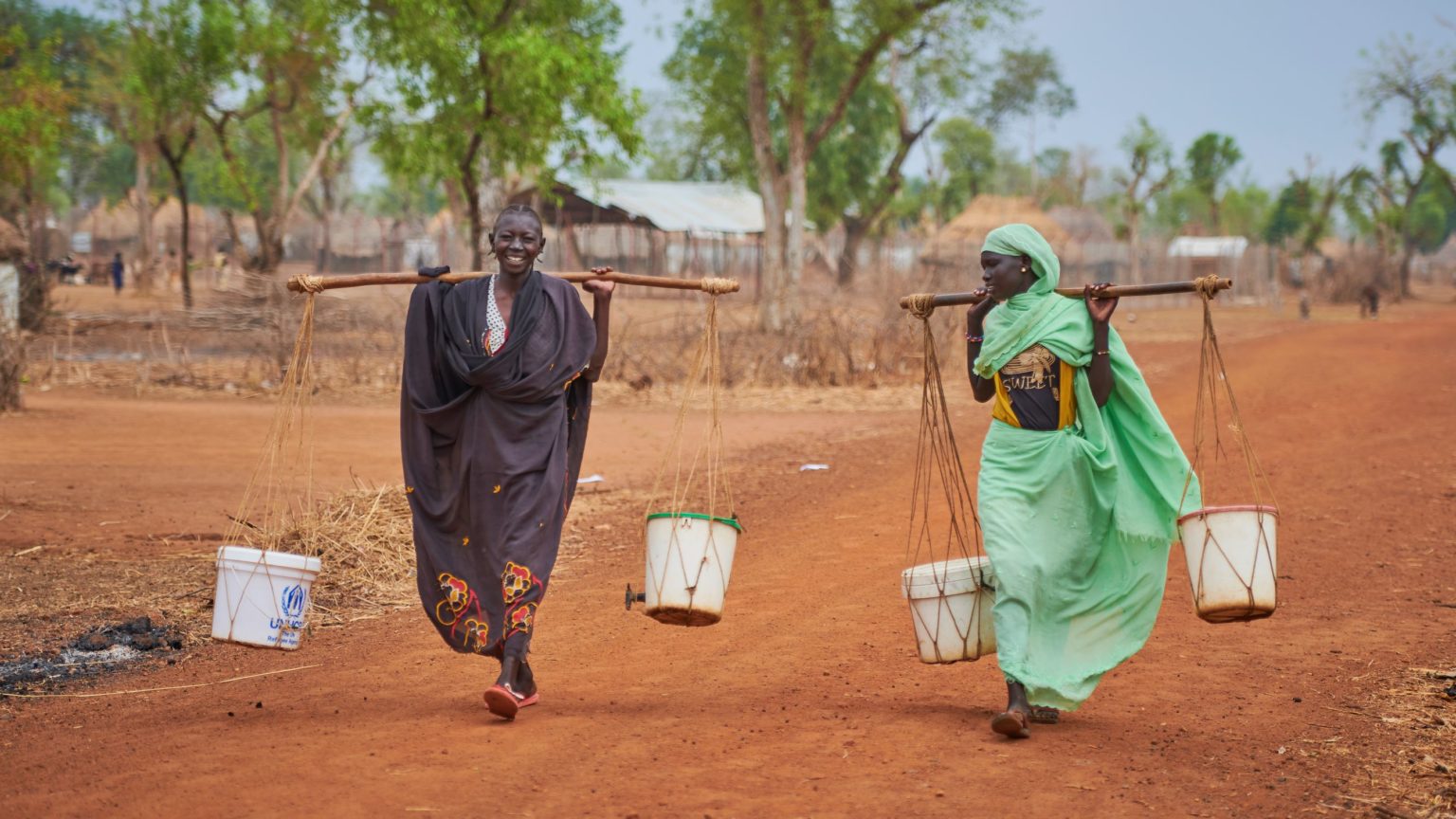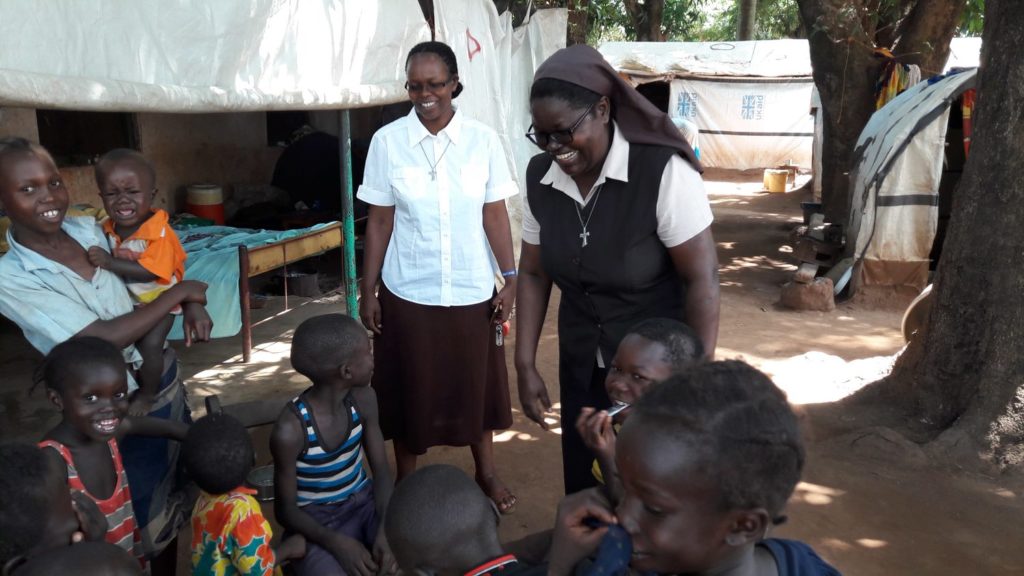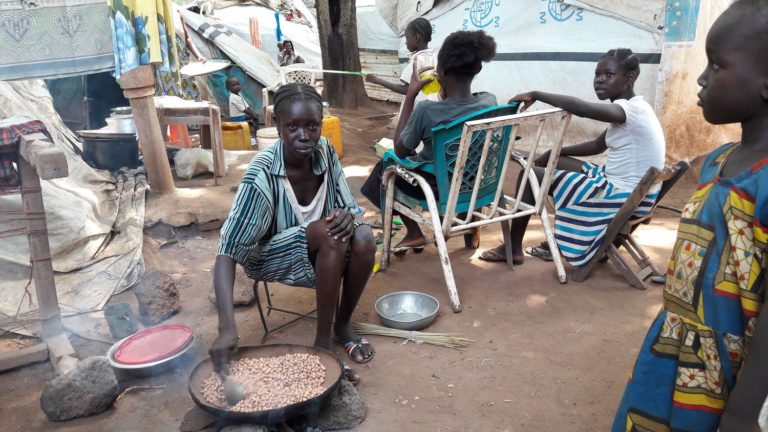

COVID–19 is taking me to South Sudan
by Niamh Caffrey on the 25/08/2020
“Covid, Covid, Covid 19. Who told you to come here? Who sent you to us? Or did you come by yourself? What have we done to you? Why are you doing this to us?”
As I reflect on these harrowing words from an 11 year old girl from South Sudan, I wonder how life
and luck could possibly present itself worse in such a fragile and insecure country. The month of June 2020 brought solace and hope to many nations across Europe, who ever so slowly, climbed out from the darkness and devastation COVID-19 ravaged on its shores, to open retail, restaurants and borders. However, this crisis is far from over, as cases today soar in South Africa, “snowball” in the United States and escalate in Brazil. The World Health Organisation announced on June 22nd 2020, that there were 9 million COVID-19 cases globally. That day marked the highest number of new cases in a single day since the outbreak started; 183,000 new cases. In one day. Less than a month later, there are over 13 million cases
worldwide.

Photo caption: Franciscan Sisters undertaking outreach with communities taking temporary shelter in Wau, South Sudan
As a newly qualified graduate of the London School of Hygiene and Tropical Medicine, I wasted no time diving into my long anticipated global health career earlier this year with Misean Cara. What I did not know was how quickly my knowledge of global and population health and healthcare emergencies would be tested. I grappled with feelings of both surprise and fear by this novel coronavirus as it swept the world. Although the suffering and need was vast here in Ireland, my job pulled me to focus on our developing world, where we feared those already on society’s fringes would be pushed beyond their current means. The first emergency request was from South Sudan, in what could only be described as a plea for help, to support a local health centre to equip itself with additional Personal Protective Equipment (PPE), medicines and disinfectant.
South Sudan is overwhelmed by political conflict, compounded by economic crisis and severe climatic extremes such as drought, which has caused massive displacement, continuous violence and acute food shortages. These factors have exacerbated local and national poverty levels. This was the bleak situation before our world was shaken by COVID-19.
In the world’s newest country, Misean Cara members have reported slow progress. When the Coronavirus reached the shores of Africa, South Sudan was slow to react. In a country which had zero ventilators at the beginning of this global pandemic (our members now reporting a meagre increase to four), they also grappled with crippled healthcare infrastructure due to the protracted war, a public healthcare system close to collapse and inadequately qualified healthcare professionals.
Hosting 1.69 million Internally Displaced Persons, the citizens of South Sudan are simply unable to adequately abide to certain World Health Organisation COVID-19 prevention guidelines. Can you picture social distancing and limited mass gatherings within IDP camps? Can you picture these measures as individuals queue for essential food at distribution sites, or at boreholes for water collection? Despite these challenges, communities, families and missionaries were undaunted.

Photo caption: Food preparation at a temporary shelter in Wau, South Sudan. Image by Justin Sauter.
My initial work responding to COVID-19 sae three Misean Cara members responding swiftly through collaborative work with their missionaries across the country.
With an intentional focus to reach those most isolated and in-need in this fractured country, project teams disseminated sensitisation and awareness messages through posters and trained community members, procured fabric to make their own masks for distribution, constructed Tippy Taps, procured medicine, WASH materials and PPE for staff and patient protection, and delivered food parcels. These measures brought hope in the face of global tragedy.
Their approaches, as we have seen, were all different, allowing their responses to be tailored to the real and emerging needs of the communities in which the missionaries lived, worked and devoted their lives too.
The response and reaction of our members was swift. But so too was COVID-19. As the world
grapples with potential second waves of COVID-19, we cannot lose focus on the African continent,
and in particular the fragile country of South Sudan. As I write this today, the country has only 2,058
confirmed COVID-19 cases, and 32 related deaths. But I cannot help to stop and question the
reliability of these figures in such an unstable country, where limited resources existed before this
global pandemic, now further stretched. Will cases suddenly rise in South Sudan, or will we ever
have an accurate answer for this, giving its weak health systems, and further limited testing?
I hope that Misean Cara members continue to fight not only this pandemic, but fight against the injustices and inequalities that continue to consume South Sudan, and that much needed global attention is focused on the resilience of the people here and also highlights their urgent needs. The needs of South Sudan were present both before, during and what will inevitably continue post- COVID-19. This global pandemic highlights for me how gross inequalities and weakened health systems can not only be fatal for the vulnerable and sick, but unbalance the playing field. With limited, or no testing in South Sudan, how can the population prepare and tackle what they cannot see and test for?
I plea for global solidarity, assistance and support to our global neighbours and missionaries in South
Sudan.

Photo caption: Krima Mangi and Aisha Albaqir carry water in the Kaya refugee camp, Maban, South Sudan. Photo Paul Jeffrey.
References:
https://www.reuters.com/article/us-health-coronavirus-global-cases/global-coronavirus-cases-rise-above-13-million-idUSKCN24E1KB
https://www.lshtm.ac.uk/
0 comments
No comments on this blog yet. Would you like to be the first?